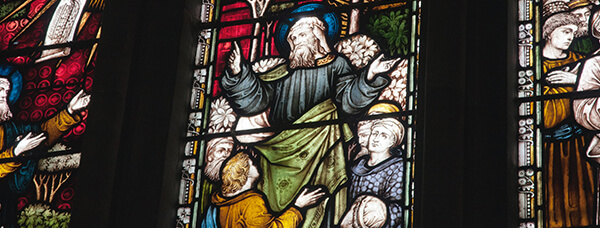Jesus replied: “‘Love the Lord your God with all your heart and with all your soul and with all your mind.’ This is the first and greatest commandment. And the second is like it: ‘Love your neighbour as yourself.’ All the Law and the Prophets hang on these two commandments.” (Matthew 22:37-40 NIV)
From Genesis to Revelation, love is the central thread that runs through the entire biblical narrative. God is love (1 John 4:8), and everything he does flows from his loving nature—creation, redemption, grace toward humanity, and the gift of His Son. Jesus himself summed up the entire Law with two commandments rooted in love (Matthew 22:37-40). This call is the very foundation of our spiritual life. Loving God and loving our neighbour are not two optional ideals—they are two inseparable pillars of the Christian faith.
Jesus begins with the greatest commandment: to love God. But this is not the kind of love we have for a spouse or a child. Scripture says to love God “with all your heart, all your soul, and all your mind.” It’s a total, all-consuming love. Let’s take a closer look at what that means for our daily life:
- All our heart: This speaks to our deep emotions, desires, and priorities—what our heart is truly attached to. To love God with all your heart is to desire him above all else. Above our comfort, success, expected answers to prayer, or even the blessings he gives. It’s choosing to make God our greatest treasure.
- All our soul: This refers to our whole being, our life force and our will. Loving God with all our soul means living for him, obeying him, and following him even when it’s hard. It means belonging to him completely.
- All our mind: Loving God also involves seeking to know him more, meditating on His Word, and aligning our thoughts with his. Our faith is not just emotional; it is grounded in truth.
This kind of love is radical. It calls us to let go of anything that might take first place in our hearts. But it is also liberating because we were created to love God, and in him our soul finds true peace.
Jesus tells us that the second commandment is similar to the first one: “Love your neighbour as yourself.” This well-known phrase deserves careful attention.
Increasingly, the world around us glorifies self-care and body worship to the point of idolatry. Of course, Jesus wants us to take care of ourselves, but he first wants us to recognize how valuable we are to him because of his love. When we receive this perfect, unconditional, sacrificial, and eternal love, we are empowered by the Holy Spirit to love as Jesus loves. It is through our love for one another that people will know that we are his disciples.
Among other things, loving your neighbour means:
- seeking their good, even when it costs you,
- forgiving them, just as God forgave us,
- serving them, as Christ served us.
But who is my neighbour? Jesus answered that question in the parable of the Good Samaritan (Luke 10:25—37): my neighbour is the person in front of me, even if they are different from me. Our love for our neighbour is not limited by ethnic, social, and political boundaries. It reaches out to the enemy, the stranger, and the marginalized.
These two commandments do not contradict each other; they are deeply connected. One cannot exist without the other:
- If I truly love God, I cannot despise those he loves.
- If I claim to love God but neglect my neighbour, my love is empty.
- My love for God compels me to love others with God’s perspective, patience, and grace.
In fact, our love for others becomes the visible evidence of our love for God. It is the tangible space where our faith takes shape. It grows in my words, my actions, and my reactions. It is the daily test of my spiritual life.
These two commandments sum up God’s call for our lives: to love deeply, fully and sincerely. This is not a natural love; it is a love made possible by God himself, through his spirit. Our love for God transforms us, and that transformation overflows to those around us.
May Jesus’s words be more than a beautiful ideal. May they become the driving force of our Christian walk, every single day.









